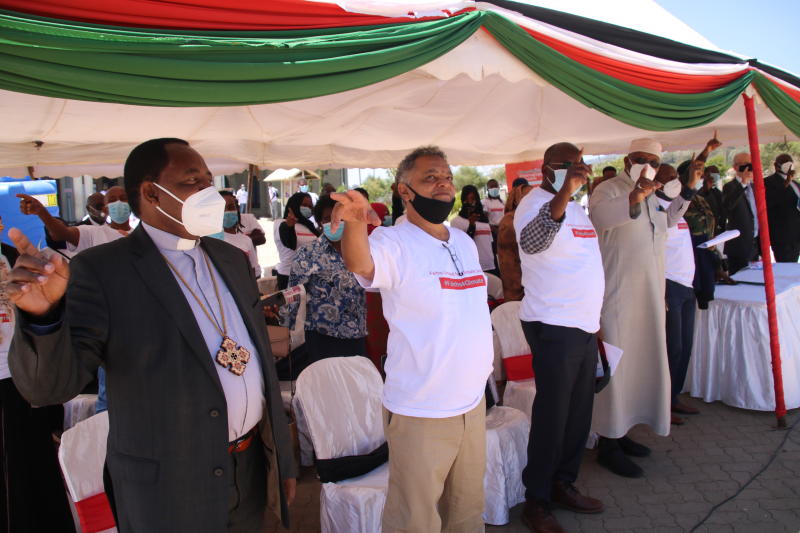×
The Standard e-Paper
Kenya’s Boldest Voice

Multifaith religious leaders during an event in commemoration of Greenfaith Day of Action in Ngong, Kenya, in March 2021. [David Gichuru, Standard]
I have been privileged to attend a meeting in which religious leaders from diverse faiths united to make one call; that it is time humans did the work their creator assigned them… to be stewards of the environment.







